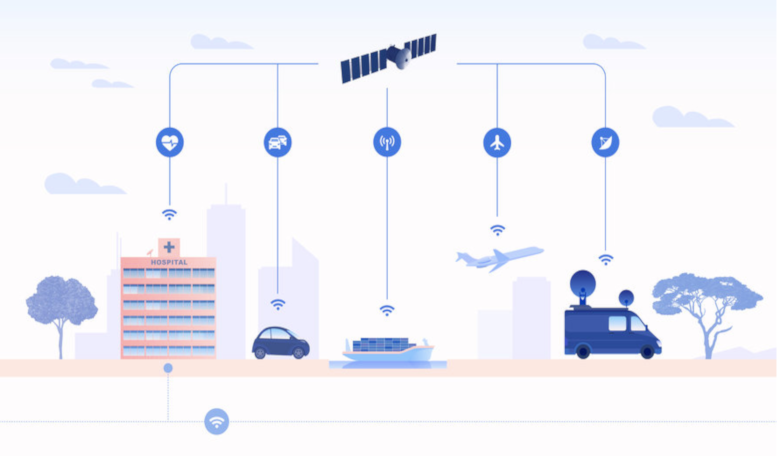The UK Space Agency, European Space Agency (ESA) and DCMS have joined forces to invite companies to submit ideas for how they can use 5G terrestrial and space technology to support the UK’s logistics businesses – from rail to ports, from DPD to Amazon.
A digital presence and the need to be connected is intrinsic to modern life and in recent times, new digital networks have increasingly been replacing old physical infrastructure as ever more services migrate online. The rollout of 5G networks will play a vital role in supporting faster connectivity across the country and innovative new systems, such as the Internet of Things.
COVID-19 has reaffirmed just how important logistics companies are in not just the UK, but across the world – keeping us connected and providing vital services like food to people’s homes and medical deliveries to people’s hospitals.
The Call for Proposals launched last week will seek out proposals from businesses for how ESA, the UK Space Agency and DCMS can use space technology to support the logistics sector in a 5G environment, and in doing so, increase the connectivity and close the digital divide for businesses in this sector.
Magali Vaissiere, ESA Director of Telecommunications and Integrated Applications said: “This is a great opportunity for ESA to join forces with DCMS and UK Space Agency and prove the key role that satellite communications will play in the future converged 5G networks.”
“In the context of the ESA 5G Strategic Programme Line, this Call for Proposals is intended to stimulate the emergence of sustainable applications relying on innovative 5G solutions, starting from the logistics sector”.
Catherine Mealing-Jones, Director of Growth at the UK Space Agency, said: “This is a great initiative to show how together we can work to help close the digital divide. Access to constant connectivity regardless of location offers huge benefits.
This Call for Proposals follows the Memorandum of Intent signed in December 2019 by ESA and DCMS, designed to support the emergence of commercially viable products and services enabled by the deployment of converged 5G terrestrial and space networks.
The UK already hosts the European Centre for Space Applications and Telecommunications in Harwell, Oxfordshire, and the European Space Agency announced at the end of June that it is to open a new ‘space tech incubation unit’ in Leicester to help start-ups access the expertise they need, whether it be from university research to large corporations. This is one of a number of business incubation centres across the UK supporting entrepreneurs and innovators who want to join our growing space sector.











